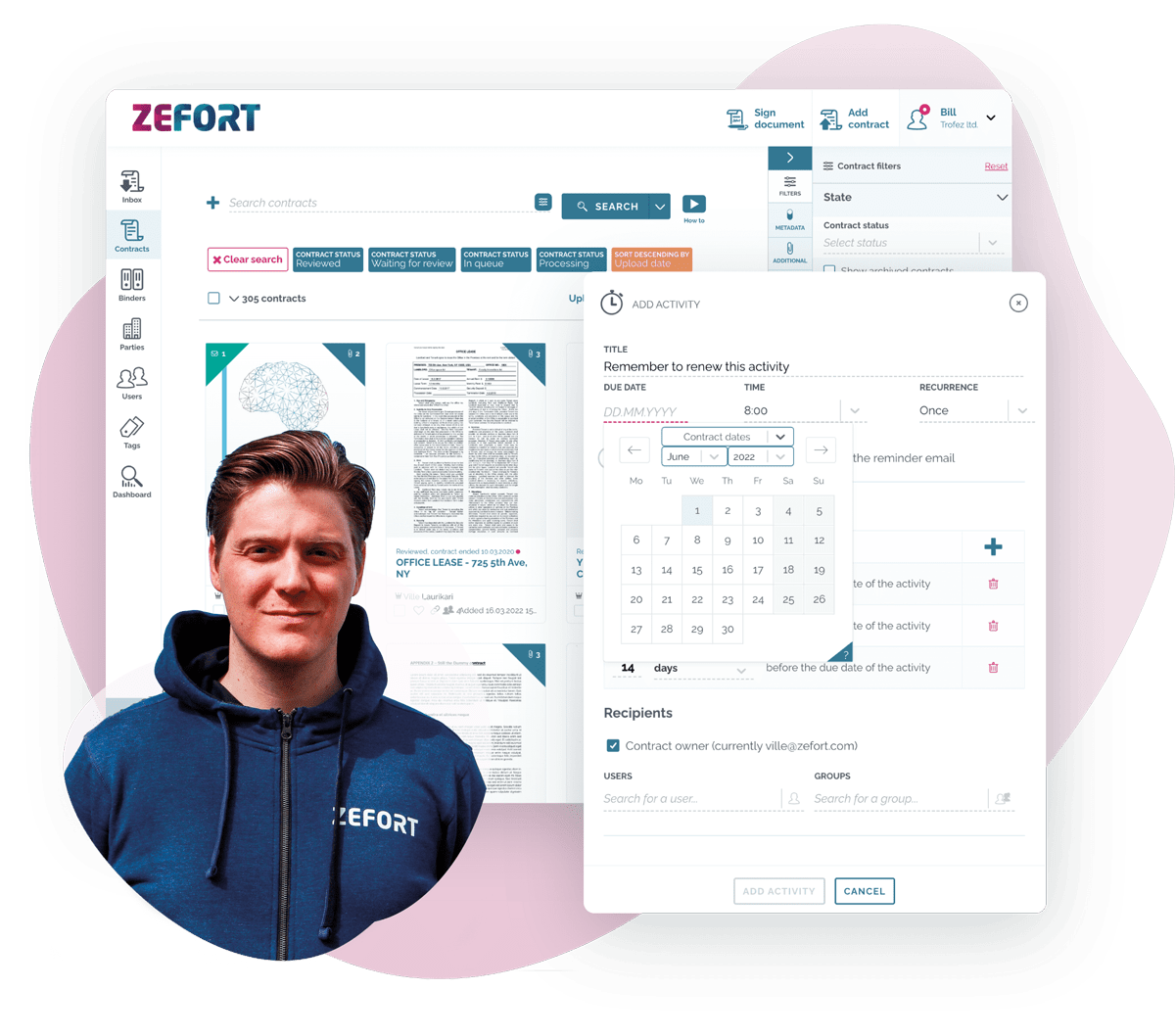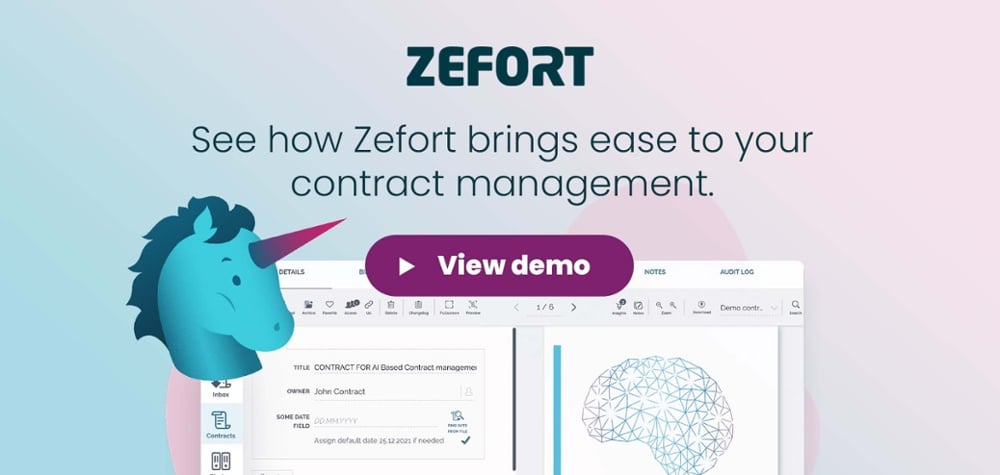Boosting Efficiency with Legal Technology: Tips for Building a High-Performing Legal Team
Are you tired of drowning in paperwork and spending hours on repetitive tasks at your company? It’s time to revolutionize the way your legal team operates by embracing the power of legal technology. In today’s fast-paced world, efficiency is key, and embracing the right tools can make all the difference. From document automation to contract management and AI-powered research tools, this article will explore actionable tips to boost your legal team’s efficiency and help you excel in your practice.
So, get ready to empower your team and take your firm to new heights with the latest legal tech innovations.
The importance of efficiency in a legal team
Efficiency is essential in a legal team. By utilizing automation, tasks that would normally take hours or even days can now be completed in minutes. This not only saves time but also increases productivity. Moreover, automation reduces the risk of errors, ensuring accuracy in legal proceedings. Furthermore, it allows team members to focus on higher-value work, such as analyzing complex cases or providing strategic advice to clients.
Overview of legal technology
Legal technology, also known as legal tech, refers to the use of technology to streamline and automate legal tasks and processes. It encompasses various software solutions designed to assist legal teams in their day-to-day operations, ranging from contract management and e-discovery to legal research and document automation. By leveraging legal tech, organizations can enhance efficiency, reduce costs, and improve accuracy in legal operations.
This technology empowers legal professionals to focus on higher-value work, while mundane and repetitive tasks are handled by intelligent systems. As the demand for efficient legal services grows, the adoption of legal tech is becoming increasingly prevalent in law firms and corporate legal departments.
Implementing Legal Team Automation
Identifying repetitive tasks and bottlenecks
Identifying repetitive tasks and bottlenecks is crucial for legal team automation. By analyzing the daily workflow, teams can identify tasks that are performed frequently and can be automated.
For example, generating standard contracts or reviewing legal documents for common errors can be streamlined with automation tools. Furthermore, pinpointing bottlenecks in the process helps identify areas that slow down efficiency and productivity. Whether it’s a specific task that takes longer or a step that requires multiple reviews, automation can help eliminate these bottlenecks, enabling the team to focus on more strategic and high-value work.
Choosing the right legal technology tools
When it comes to choosing legal technology tools for your team, consider your specific needs and objectives. Look for tools that streamline processes, enhance collaboration, and improve efficiency. Prioritize user-friendly interfaces and compatibility with existing systems. Evaluate the security features and ensure compliance with data protection regulations. Take into account the scalability and flexibility of the technology, as well as the level of support and training provided.
Finally, investigate the vendor’s reputation, client feedback, and track record. By carefully selecting the right legal technology tools, you can empower your team to work smarter and faster, ultimately improving overall productivity and client service.
Utilizing document automation software
Utilizing document automation software can significantly enhance efficiency for legal teams. This technology streamlines the creation, editing, and management of legal documents, saving time and reducing errors. With document automation software, repetitive tasks such as document assembly, formatting, and version control become automated, allowing lawyers to focus on critical legal analysis. It also ensures consistency across all documents, minimizing the risk of inconsistencies or mistakes.
Additionally, this software often integrates with other legal tools and repositories, providing a centralized platform for document storage and retrieval.
Streamlining contract management with AI
Streamlining contract management with AI allows legal teams to save time and effort. By automating contract analysis and categorization, AI technology can efficiently review contracts, identify key terms, and summarize important information. This eliminates the need for manual review and speeds up the contract management process. AI can also assist in contract drafting by suggesting standard clauses and highlighting any potential risks or deviations from company policies.
With AI’s assistance, legal teams can streamline their contract management processes, minimize errors, and focus on higher-value tasks.
Enhancing Collaboration
Implementing project management tools
Implementing project management tools is crucial for achieving successful legal team automation. These tools streamline workflow, enhance collaboration, and improve overall efficiency. By utilizing project management software, legal teams can track tasks, manage deadlines, and allocate resources effectively. This ensures smooth coordination between team members and enhances productivity.
Utilizing cloud-based platforms for document sharing
Utilizing cloud-based platforms for document sharing and contract management offers legal teams numerous advantages. With these platforms, team members can securely store and access files from any location, facilitating remote collaboration. Real-time editing and version control features ensure everyone works on the most up-to-date documents. Moreover, cloud-based platforms enable seamless sharing with external parties, such as clients and opposing counsel, eliminating the need for extensive email exchanges.
This streamlined approach not only saves time but also reduces the risk of miscommunication and document errors. Lastly, cloud-based platforms provide comprehensive audit trails, enhancing transparency and compliance in legal proceedings.
Improving Efficiency in Legal Research
Using AI-powered legal research platforms
Using AI-powered legal research platforms can greatly streamline the work of legal teams. These platforms are designed to quickly analyze vast amounts of legal data and provide relevant information for cases and legal research. By leveraging machine learning algorithms, these platforms can offer comprehensive insights and suggestions, saving time and effort.
With advanced search capabilities, legal professionals can easily find relevant cases, legislation, and precedents, enabling them to make more informed decisions.
Utilizing contract analysis tools
Utilizing contract analysis tools streamlines the legal team’s workflow by automating manual tasks. These tools can quickly scan and analyze large volumes of contracts, identifying key terms and clauses. This saves valuable time and reduces the risk of errors that can arise from manual review. By extracting relevant data and providing an overview of contractual obligations, these tools enable legal professionals to make informed decisions with ease.
Furthermore, contract analysis tools often offer customizable templates and standardized drafting suggestions, ensuring consistency and adherence to company policies. With the help of these tools, legal teams can increase efficiency, minimize risks, and focus on more complex legal matters.
Key Challenges and Solutions
Overcoming resistance to change in legal teams
Overcoming resistance to change in legal teams is crucial for successful implementation of automation. Resistance often stems from fear of job loss or increased workload, so it’s important to communicate the benefits automation brings, such as improved efficiency and accuracy. Demonstrating how automation can free up time for higher-value tasks can help alleviate concerns and show that it can complement their work instead of replacing it.
Ensuring data security and compliance
Ensuring data security and compliance is paramount in legal team automation. With sensitive information at stake, it is crucial to prioritize the protection of data from unauthorized access and breaches. Robust encryption methods should be employed to secure data both in transit and at rest. Regular audits and assessments must be conducted to identify vulnerabilities and ensure compliance with relevant laws and regulations.
It is important to implement strict access controls to limit data exposure and provide only authorized personnel with necessary privileges. Maintaining a comprehensive data backup and recovery system is essential to prevent data loss and enable timely restoration in case of any incidents. By prioritizing data security and compliance, legal teams can safeguard confidential information and maintain the trust of clients and stakeholders.
The future of legal team automation
The future of legal team automation holds tremendous potential. With advancements in artificial intelligence (AI) and machine learning, repetitive tasks can be efficiently handled by automated systems. This allows legal professionals to focus on higher-value work, such as strategic decision-making and client interaction. AI-powered contract analysis tools can quickly extract relevant information from vast amounts of legal documents, saving time and reducing human error.
Additionally, automation can streamline the document review process, increasing efficiency and ensuring compliance. As technology continues to evolve, legal teams will increasingly rely on automation to enhance their productivity, accuracy, and overall effectiveness.






